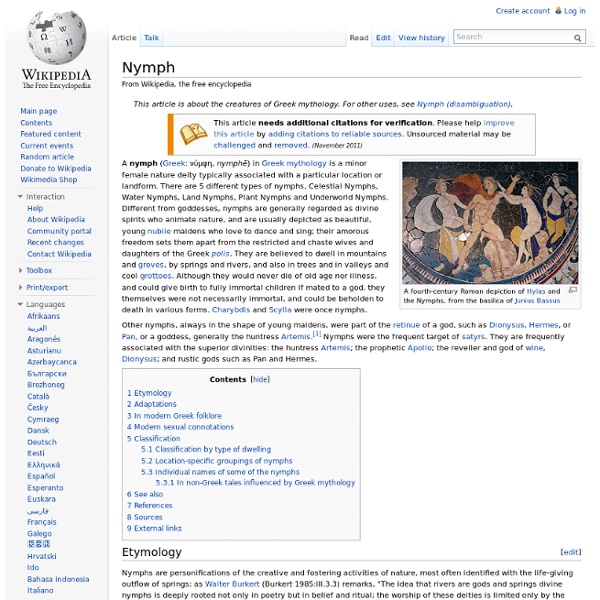Planet X Nibiru and the Anunnaki of Sumerian Mythology
Nibiru - Planet X - the Anunnaki - Sumerian Mythology Zecharia Sitchin has devoted his life to the study of ancient Sumerian civilzation, language, art, and religion. Sitchen is also the author of several books which explain his theories about human origins on earth and the involvement of the "ancient astronauts", a group called the "Annunaki" (or "Nephilim") whom "from heaven to earth came", inhabitants from the planet Nibiru, also known as planet X, the tenth planet in our solar system, and one that the ancients of the past knew about and depicted in their mythology. Zacharia Sitchen and his Theory a cosmic collision - the anunaki arrive - gold mining on earth - biogenetic experiments the gods send a flood - the return of planet X - babylonian creation - Nibiru and Tiamat Ancient Sumer (Mesopotomia) Sumerian creation myth the deluge myth - heaven and earth
Aeschylus
ancient Athenian tragic playwright Aeschylus (,[1] ;[2] Greek: Αἰσχύλος Aiskhylos, pronounced [ai̯s.kʰý.los]; c. 525/524 – c. 456/455 BC) was an ancient Greek tragedian. He is often described as the father of tragedy.[3][4] Academics' knowledge of the genre begins with his work,[5] and understanding of earlier tragedies is largely based on inferences from his surviving plays.[6] According to Aristotle, he expanded the number of characters in the theatre and allowed conflict among them; characters previously had interacted only with the chorus.[nb 1] Life[edit] Aeschylus was born in c. 525 BC in Eleusis, a small town about 27 kilometers northwest of Athens, which is nestled in the fertile valleys of western Attica,[10] though the date is most likely based on counting back forty years from his first victory in the Great Dionysia.
Queer Culture Collection
The Abduction of Ganymede (ca. 1650), By Eustache Le Sueur “Verily wise Zeus carried off golden-haired Ganymedes because of his beauty, to be amongst the Deathless Ones and pour drink for the gods in the house of Zeus–a wonder to see–, honoured by all the immortals as he draws the red nectar from the golden bowl . . . deathless and unageing, even as the gods.” – Homeric Hymn 5 to Aphrodite 203 ff (trans.
Danaïdes
mythical characters Mythology[edit] Danaus did not want his daughters to go ahead with the marriages and he fled with them in the first boat to Argos, which is located in Greece near the ancient city of Mycenae. Danaus agreed to the marriage of his daughters only after Aegyptus came to Argos with his fifty sons in order to protect the local population, the Argives, from any battles.
Women in Ancient Greece
Women in the ancient Greek world had few rights in comparison to male citizens. Unable to vote, own land, or inherit, a woman’s place was in the home and her purpose in life was the rearing of children. This, though, is a general description, and when considering the role of women in ancient Greece one should remember that information regarding specific city-states is often lacking, is almost always from male authors, and only in Athens can their status and role be described in any great detail. Neither are we sure of the practical and everyday application of the rules and laws that have survived from antiquity. We do know that Spartan women were treated somewhat differently than in other states.
Keroessa
Story[edit] According to the historian Hesychius of Miletus,[3] as Io, changed into a heifer and being chased by a gadfly on behalf of the jealous Hera, was passing through Thrace, she gave birth to a girl, Keroessa, on the banks of the Golden Horn, by the altar of the nymph Semestra. Keroessa was reared by Semestra and grew up surpassing other local maidens in beauty.
Learn Your Mayan Sign
Today is your spiritual birthday. The energy of the day you are born is fully active. Today you are in the day of Serpent and 10, and also week of the Owl. This is a very special day that comes around every 260 days. Therefore, today, life seems very meaningful to you.
Juno
From Wikipedia, the free encyclopedia Jump to navigationJump to search Juno could mean:
Sortes Vergilianae
History[edit] Classical instances[edit] Sir Philip Sidney's Defence of Poesie describes Roman beliefs about poetry and recounts a famous Sors Vergiliana by Decimus Clodius Albinus, a Roman who ruled Britain and laid claim to the Roman Empire, but was defeated in battle by Septimius Severus: Among the Romans a poet was called vates, which is as much as a diviner, foreseer, or prophet, as by his conjoined words, vaticinium and vaticinari, is manifest; so heavenly a title did that excellent people bestow upon this heart-ravishing knowledge.



